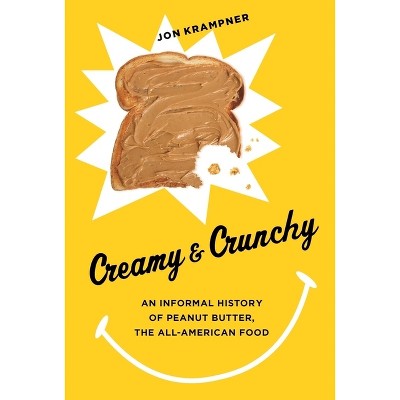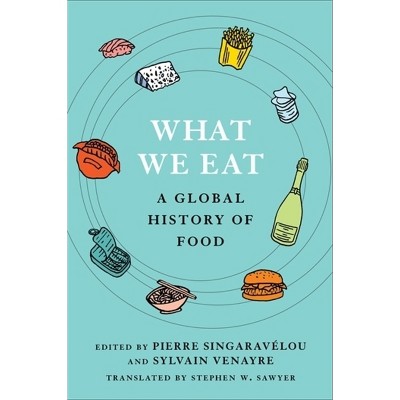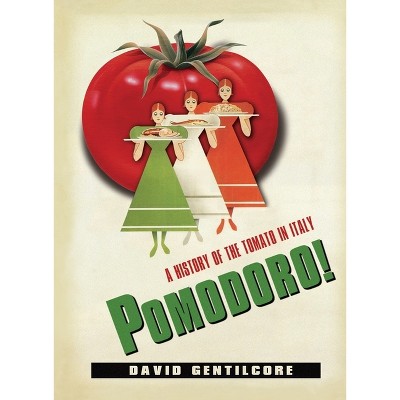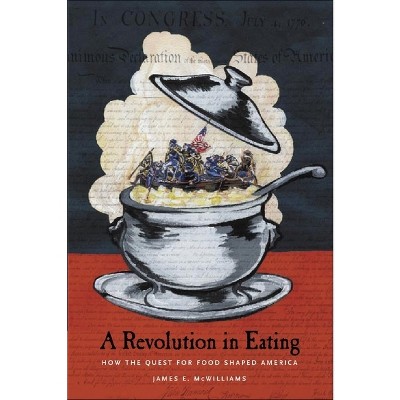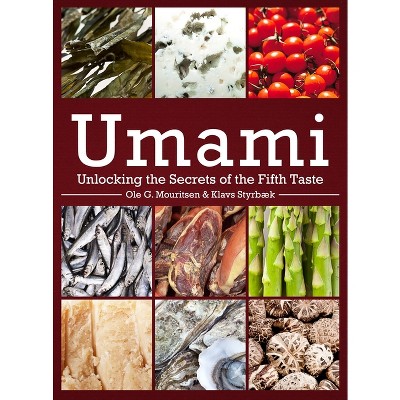Sponsored

Breadfruit - (Arts and Traditions of the Table: Perspectives on Culinary H) by Russell Fielding
Pre-order
Sponsored
About this item
Highlights
- Breadfruit trees are staples of the tropics, bearing cantaloupe-sized green-skinned fruits whose taste and texture resemble potatoes.
- About the Author: Russell Fielding is an associate professor in the HTC Honors College and the Spadoni College of Education and Social Sciences at Coastal Carolina University.
- 304 Pages
- Cooking + Food + Wine, History
- Series Name: Arts and Traditions of the Table: Perspectives on Culinary H
Description
About the Book
Russell Fielding explores breadfruit's fascinating global history and varied present-day uses, bringing together extensive research and vivid travelogues.Book Synopsis
Breadfruit trees are staples of the tropics, bearing cantaloupe-sized green-skinned fruits whose taste and texture resemble potatoes. More than three thousand years ago, breadfruit fueled the Pacific voyages of discovery that settled islands throughout Oceania. In the late eighteenth century, the British expedition that ended with the mutiny on the Bounty aimed, but failed, to introduce breadfruit to the West Indies as food for enslaved African laborers on sugar plantations. A later voyage resulted in the fruit's widespread distribution and complicated role within modern Caribbean food cultures. In recent years, breadfruit has been touted as a tool for sustainable development and as a "superfood" with both health benefits and culinary versatility.
Russell Fielding tells these stories and many others, exploring breadfruit's fascinating global history and varied present-day uses. Bringing together extensive research and vivid travelogues, including learning directly from local agriculturists, chefs, scientists, and holders of traditional knowledge, he provides an immersive narrative of breadfruit's contributions. Fielding argues that breadfruit's history comprises two journeys: first, from its origins in Southeast Asia across the Pacific; and second, its transplantation to the Caribbean. Today, a third journey is taking place, one that is spreading breadfruit throughout the world. Engagingly written and compellingly argued, this book draws timely lessons from breadfruit's past to forecast its future potential.Review Quotes
A fascinating exploration of the intersections among natural and cultural history. Breadfruit's nourishing, troubled, and inspiring histories and futures are brought to vivid life in these pages. Through engaging and deeply researched stories and site visits, Fielding reveals the life-giving relationships among people and plants.--David George Haskell, biologist and two-time Pulitzer-finalist author of Sounds Wild and Broken, The Songs of Trees, and The Forest Unseen
Russell Fielding is an infectious optimist, writing with a spirit of adventure, and this proved to be an entertaining and even joyful experience.-- "Caribbean Compass"
This book is a valuable contribution to understanding breadfruit and its global significance. Russell Fielding's interdisciplinary approach yields thought-provoking, nuanced analysis of the socioeconomic, environmental, and biological factors that affect breadfruit's potential to enhance food and nutrition security. Recommended particularly for professionals in sustainable agriculture and development as well as readers interested in neglected and underutilized food plants.--Laura Roberts-Nkrumah, University of the West Indies
Russell Fielding is prophetic in identifying breadfruit's potential for improving food security for our world. Here on the small Pacific Island of Guam, we have embraced these strategies on breadfruit in our struggle for greater self-sufficiency.--Robert Bevacqua, University of Guam
About the Author
Russell Fielding is an associate professor in the HTC Honors College and the Spadoni College of Education and Social Sciences at Coastal Carolina University. He is a geographer who studies sustainable food systems in the world's coastal and island settings. Fielding is the author of The Wake of the Whale: Hunter Societies in the Caribbean and North Atlantic (2018).Shipping details
Return details
Frequently bought together






![DreamWorks Dragons: Recipes from the Isle of Berk [Official Cookbook] - by Daytona Danielsen & Erik Burnham (Hardcover)](https://target.scene7.com/is/image/Target/GUEST_6bc2e29a-c653-4111-b30d-2e086599f36e)
